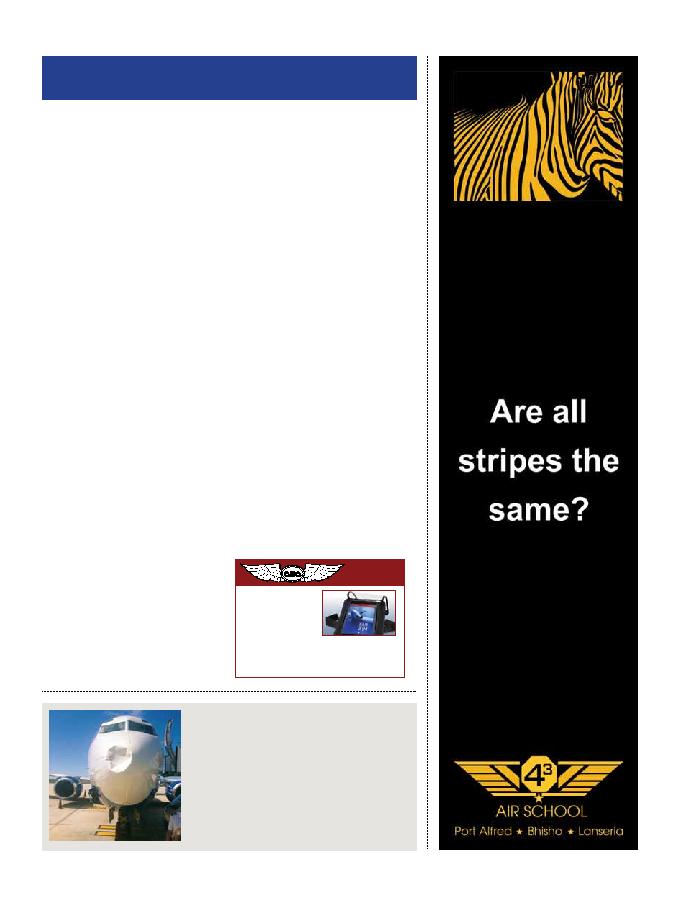
2013 FEBRUARY / Vol. 5 / No. 2 /
GA
27
As looming financial difficulties continue
to hinder the growth of airlines in Europe and
North America, Indonesia is seeing something
of a tenacious revival. Aviation has long been
the backbone of transportation in the SE-Asian
country owing to its wide geographical dispersion
and severe lack of regional transport alternatives.
Indeed, by 2030 the archipelago nation is predicted
to hold over half of the total aircraft units in the
ASEAN group of states. This is being fuelled
largely by ongoing passenger growth, which has
amounted to between 15 and 25 percent over the
past five years. Such a transformation will of course
warrant sizable growth in flight crew numbers and
efforts to stave off the ineffectiveness of current
pilot training institutions. However, with the wealth
of opportunities presented to foreign pilots, we ask
the question: what can one expect from a career
in Indonesia?
As a centre for airline growth in the region,
Indonesia is expected to need in excess of
18,000 pilots over the near future in order to
meet the country's 8 percent year-on-year flight
sector growth. Preliminary figures of a further
4,000 pilots, 7,500 maintenance specialists and
1,000 ATC personnel in the country are alone
necessitated under regional market liberalisation
policies to be passed in Indonesia over the next 8
years. Although such growth is pleasing news for
the wider industry, a crisis emanates from serious
shortfalls in the country's pilot training institutions.
Despite a population on par with that of the United
States, Indonesia hosts a grand total of 13 different
flight training schools, in comparison to the 1,000
plus schools scattered across the US. Industry
analysts assert that the country currently faces a
shortage of as many as 200 pilots each year, with
conditions set to deteriorate unless drastic changes
are sought.
`In response to pilot training deficiencies in
Indonesia, recent years have seen the country
increase its reliance upon foreign crew to service its
extensive flight networks. Carriers including Lion
Air, Susi Air and Sriwijaya all have sizable expat
bases from across Europe and North America. The
starting pay is typically below industry standards
but the carriers often afford ample opportunities
for career progression,' comments the CEO of
AviationCV.com, Skaiste Knyzaite.
However, S. Knyzaite is quick to point out that
accepting an expat position in Indonesia is not for
everyone. A number of expat pilots have reported
frustration with adjusting to living conditions in
the country. The fact remains that nepotism and
a dependency on hierarchy are central pillars
of business life in Indonesia, resulting in the
cumbersome bureaucratic difficulties faced by
many foreigners. Indonesia also has one of the
lowest world rankings for the cultural dimension
of individualism (14 compared to the global
average of 43). This places a heavy strain on
workplace relations for expats unaccustomed
to such an ethos. Specifically, in the case of a
cockpit environment, this has the potential to
engender conflict or misunderstandings between
multiethnic crew, resulting in less than optimal
flight conditions. Dealing with such situations may
also prove precarious, as a number of expat pilots
have reported facing unusually punitive company
policies in response to operational breaches. In
addition, foreigners should expect lower standards
and regularity of English language levels compared
to most neighbouring countries.
`It is important that pilots take the time to
familiarise themselves with the cultural and
living environments of their intended country
prior to accepting a position abroad. In the case
of Indonesia, there are many resources available
to assist expats in becoming acquainted with
life in this Islamic country, as well as the type of
treatment and conditions one might expect in the
country's aviation sector. Moreover, air transport
in the country continues to be hampered by an
appalling safety record, so pilots should be aware
of the likelihood for substandard infrastructure
and regulation. Facing all these issues alone
can prove quite a conundrum. However, many
flight crew leasing agencies have a long line of
experience assisting their pilots with both official
and unexpected issues from before dispatch right
through to the end of the pilot's contract,' said
Skaiste Knyzaite ·
The rising East: Opportunities and challenges
for pilots in Indonesia
This pic demonstrates what birds can do even at high
altitude. This BA B737-300 and the crew and pax were
fortunate that the nose cone took the impact rather than
one or both engines as was the case with the US airways
Hudson river A320.
Birds are becoming less and less of a problem with
higher bypass ratio engines but they are still a big factor.
Bird strike
at high altitude
GENERAL
PILOT
SUPPLIES
Visit http://www.asa2fly.com/za to view
ASA products, many stocked locally in
Johannesburg, South Africa at General Pilot Supplies.
Tel:+27(0)114624601·Email:mw17@mweb.co.za
GenPilotSupplies-GlobalAviator.indd 1
2/24/12 3:14 PM

